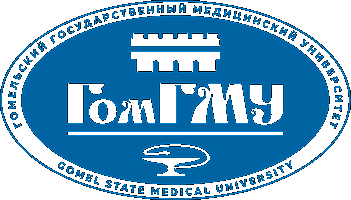| dc.contributor.author | Chebotkevich, V. N. | |
| dc.contributor.author | Kovalev, A. A. | |
| dc.contributor.author | Kuleshova, A. V. | |
| dc.contributor.author | Kaytanjan, E. I. | |
| dc.contributor.author | Stizhak, N. P. | |
| dc.contributor.author | Kostroma, I. I. | |
| dc.contributor.author | Stoma, I. O. | |
| dc.contributor.author | Chekrygin, S. A. | |
| dc.contributor.author | Bessmeltsev, S. S. | |
| dc.contributor.author | Sidorkevich, S. V. | |
| dc.date.accessioned | 2025-02-17T06:16:46Z | |
| dc.date.available | 2025-02-17T06:16:46Z | |
| dc.date.issued | 2023 | |
| dc.identifier.citation | Biodiversity screening of gut microbiome during autologous stem cell transplantation as a predictor of bloodstream infections in oncohematological patients / V. N. Chebotkevich, A. A. Kovalev, A. V. Kuleshova [et al.] // Cellular Therapy and Transplantation. – 2023. – Vol. 12, № 3. – P. 23–28. | ru_RU |
| dc.identifier.uri | http://elib.gsmu.by/handle/GomSMU/16392 | |
| dc.description.abstract | Allogeneic HSCT is frequently associated with severe
systemic infectious complications. Endogenous infections of intestinal origin are known to play a leading role
in their occurence. Despite abundant data confirming
the key role of gut microbiome in allogeneic HSCT, less
is known about its role in autologous HSCT (ASCT). In
this study, we aimed to investigate the characteristics of
the gut microbiome that contribute to the development
of bloodstream infections (BSI) in oncohematological
patients during high-dose chemotherapy and AHSCT.
We conducted a study on the microbial diversity of the
gut microbiome during AHSCT in 30 patients with
multiple myeloma (MM). The protocol involved stool
sampling prior to AHSCT and during the post-transplant period. Our study revealed a significant decrease
of the bacterial diversity index during AHSCT (p=0.02).
The dominance of Proteobacteria in the intestinal microbiome proved to be an independent factor in the development of Gram-negative bloodstream infections in the
patients. An increased ratio of Proteobacteria in the spectrum of gut microbiome over 30% is a reliable predictor
of systemic Gram-negative bloodstream infections in patients undergoing high-dose chemotherapy and AHSCT.
Therefore, monitoring biodiversity of intestinal microbiome is crucial in both allogeneic and autologous HSCT
to identify high-risk groups for developing bloodstream
infections. The stool samples for such monitoring should
be evaluated both prior to HSCT, and post-transplant. | ru_RU |
| dc.language.iso | en_US | ru_RU |
| dc.publisher | Cellular Therapy and Transplantation | ru_RU |
| dc.subject | autologous stem cell transplantation | ru_RU |
| dc.subject | multiple myeloma | ru_RU |
| dc.subject | gut microbiota | ru_RU |
| dc.subject | biodiversity index | ru_RU |
| dc.subject | bloodstream infections | ru_RU |
| dc.subject | predictors | ru_RU |
| dc.subject | oncohematological patients | ru_RU |
| dc.title | Biodiversity screening of gut microbiome during autologous stem cell transplantation as a predictor of bloodstream infections in oncohematological patients | ru_RU |
| dc.type | Article | ru_RU |
| dc.identifier.doi | https://doi.org/10.18620/ctt-1866-8836-2023-12-3-23-28 | |
